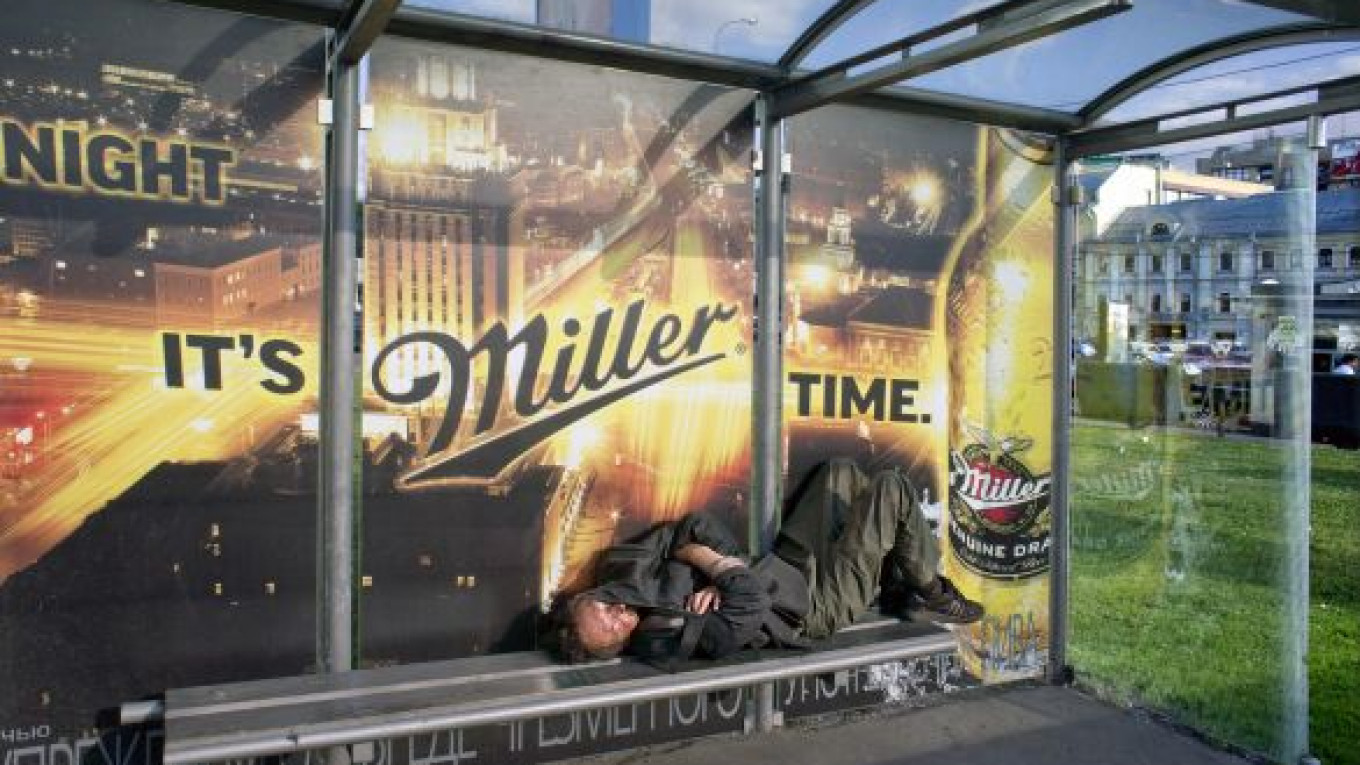The latest move in a legal crusade to crack down on Russians' love of alcohol could see beer advertising banished from the Internet.
A new law on advertising that comes into force July 23 will ban all alcohol advertising on television and radio, on the front and back pages of newspapers and magazines, and from outdoor advertising.
A separate law that went to its second reading in the Duma on Friday would ban beer advertising on websites registered as "media."
But some deputies are pushing to turn that into a blanket ban on advertising of alcohol products anywhere on the Internet.
Igor Rudinsky, a United Russia Duma deputy backing the bill, told Vedomosti that the amendment was targeted at advertising on social media sites, which are heavily used by young people but not registered as media.
Questions abound about whether the law will be enforceable, however.
Andrei Kashevarov, deputy head of the Federal Anti-Monopoly Service, told Vedomosti that monitoring the whole Internet would be "impossible" for the service in its current state.
"We couldn't exert total control, just a sample," he said.
The second reading came on the same day a St. Petersburg court began hearing an appeal by Heineken against an anti-monopoly service ruling on its advertising.
The service ruled last month that the Dutch brewing giant broke advertising laws when it placed an advertisement for its Three Bears brand of beer on the St. Petersburg metro that featured a cartoon image of footballer Andrei Arshavin and the slogan "Play with Arshavin for real?"
Images of people or animals are banned in alcohol advertising, but can be used on product labels.
Reaction in the industry has been muted. Baltika Breweries, the largest beer producer in Russia, did not respond to requests to comment by late Friday.
A Duma deputy rejected complaints that the flurry of new laws aimed at cracking down on sales and advertising of alcohol and tobacco was draconian.
"Lots of the points in [the tobacco bill] under development were initiated by tobacco corporations, so when the media say this is draconian it is a myth," Sergei Furgal, chairman of the Duma sub-committee on healthy lifestyles said at a conference on the Russian food industry. He added that in its current form, the tobacco bill "does not properly tackle the problem facing Russia."
A Message from The Moscow Times:
Dear readers,
We are facing unprecedented challenges. Russia's Prosecutor General's Office has designated The Moscow Times as an "undesirable" organization, criminalizing our work and putting our staff at risk of prosecution. This follows our earlier unjust labeling as a "foreign agent."
These actions are direct attempts to silence independent journalism in Russia. The authorities claim our work "discredits the decisions of the Russian leadership." We see things differently: we strive to provide accurate, unbiased reporting on Russia.
We, the journalists of The Moscow Times, refuse to be silenced. But to continue our work, we need your help.
Your support, no matter how small, makes a world of difference. If you can, please support us monthly starting from just $2. It's quick to set up, and every contribution makes a significant impact.
By supporting The Moscow Times, you're defending open, independent journalism in the face of repression. Thank you for standing with us.
Remind me later.






